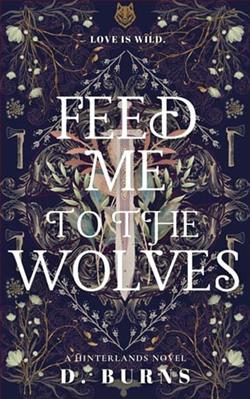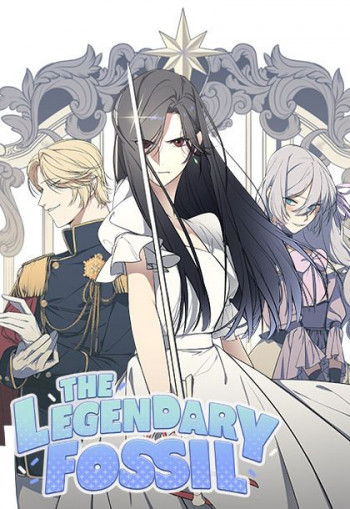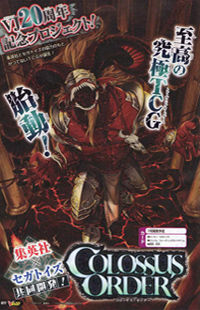
Feed Me to the Wolves
by D. Burns
Eighteen-year-old Fenli has been married for the past ten years, and she’s pissed as hell about it.
The boy she was forced to marry has been away with the hunters since their ceremony, and Fenli tries to forget the bastard exists. She’s content keeping to herself in the village–until he returns to bring the clan north with him.
Roan isn’t a boy anymore, and the pair is at odds from the start. Whispers about Fenli not belonging continue to grow, and Fenli stumbles across a pack of wolves, causing her to question the ideologies she was raised with even further.
Fenli is pulled between her mother’s clan, where she desperately wants to belong, and her father’s clan, which is taking drastic measures to get her back. She’s torn over the wolves she’s observed and the wolf hunters she calls family. She’s also getting too close to Roan, who seems determined to unravel her secrets.
No one expects trouble from the girl they think is meek, but Fenli is about to give them all hell.
Starting with her husband.
Feed Me to the Wolves is an atmospheric YA romantic fantasy filled with feminine rage, forced proximity, and a hate-to-love, slow-burn romance.
.
Read
Feed Me to the Wolves on http://kissnovel.net
Martial Peak Reviews
D. Burns' Feed Me to the Wolves is a compelling addition to the young adult fantasy genre, weaving together themes of identity, belonging, and rebellion against societal norms. The novel's protagonist, Fenli, is a character who immediately captures the reader's attention with her fiery spirit and complex emotions. Married off at the tender age of eight, Fenli's life has been dictated by the customs of her clan, and her resentment towards her absent husband, Roan, is palpable from the outset. This sets the stage for a narrative that is as much about personal discovery as it is about challenging the status quo.
One of the most striking aspects of the book is its exploration of feminine rage. Fenli embodies a quiet yet potent fury against the constraints imposed upon her by a patriarchal society. Her journey is not just about finding her place between two clans but also about asserting her autonomy in a world that seeks to define her by her relationships with men. This theme is particularly resonant in today's cultural climate, where discussions about gender roles and female empowerment are increasingly prevalent.
The character development in Feed Me to the Wolves is nuanced and engaging. Fenli is a multi-dimensional character whose internal struggles are portrayed with depth and sensitivity. Her interactions with Roan are fraught with tension, and their evolving relationship is a testament to Burns' skill in crafting a hate-to-love, slow-burn romance. Roan, initially perceived as an antagonist, gradually reveals layers of complexity that challenge Fenli's—and the reader's—preconceptions. Their dynamic is reminiscent of the intricate relationships found in works like Sarah J. Maas' A Court of Thorns and Roses, where characters must navigate personal and political conflicts to find common ground.
The novel's setting is richly atmospheric, with the northern wilderness serving as both a backdrop and a catalyst for Fenli's transformation. The wolves, a central motif in the story, symbolize the wildness and freedom that Fenli yearns for. Her encounters with the pack are pivotal moments that force her to confront the ideologies she has been taught and to question where her true loyalties lie. This element of the narrative is reminiscent of Maggie Stiefvater's The Wolves of Mercy Falls series, where the natural world plays a crucial role in the characters' journeys.
Burns' writing is both lyrical and evocative, drawing readers into a world that is at once familiar and fantastical. The tension between Fenli's mother's clan and her father's clan adds a layer of political intrigue that enriches the plot. The stakes are high, and the sense of impending conflict keeps the reader engaged throughout. The novel deftly balances action with introspection, ensuring that the pacing remains dynamic without sacrificing character development.
One of the novel's strengths is its ability to subvert traditional fantasy tropes. While the premise of a young woman caught between two worlds is not new, Burns infuses the narrative with fresh perspectives and unexpected twists. Fenli is not a passive heroine waiting to be rescued; she is a force to be reckoned with, determined to carve out her own destiny. This subversion of expectations is a hallmark of contemporary fantasy literature, aligning Feed Me to the Wolves with works like Leigh Bardugo's Six of Crows, where characters defy stereotypes and challenge the norms of their societies.
Overall, Feed Me to the Wolves is a powerful exploration of identity, belonging, and resistance. It is a story that will resonate with readers who appreciate complex characters and richly woven narratives. Burns has crafted a tale that is both timeless and timely, offering a fresh take on the fantasy genre that will appeal to fans of both romance and adventure. The novel's themes of empowerment and self-discovery are universal, making it a compelling read for anyone who has ever felt out of place or constrained by societal expectations.
In conclusion, D. Burns has delivered a novel that is as thought-provoking as it is entertaining. Feed Me to the Wolves is a testament to the power of storytelling to challenge and inspire, and it is sure to leave a lasting impression on its readers. Whether you are drawn to the romance, the fantasy, or the exploration of identity, this book offers something for everyone. It is a must-read for fans of the genre and a promising addition to the canon of young adult literature.























Reviews 0
Post a Reviews: